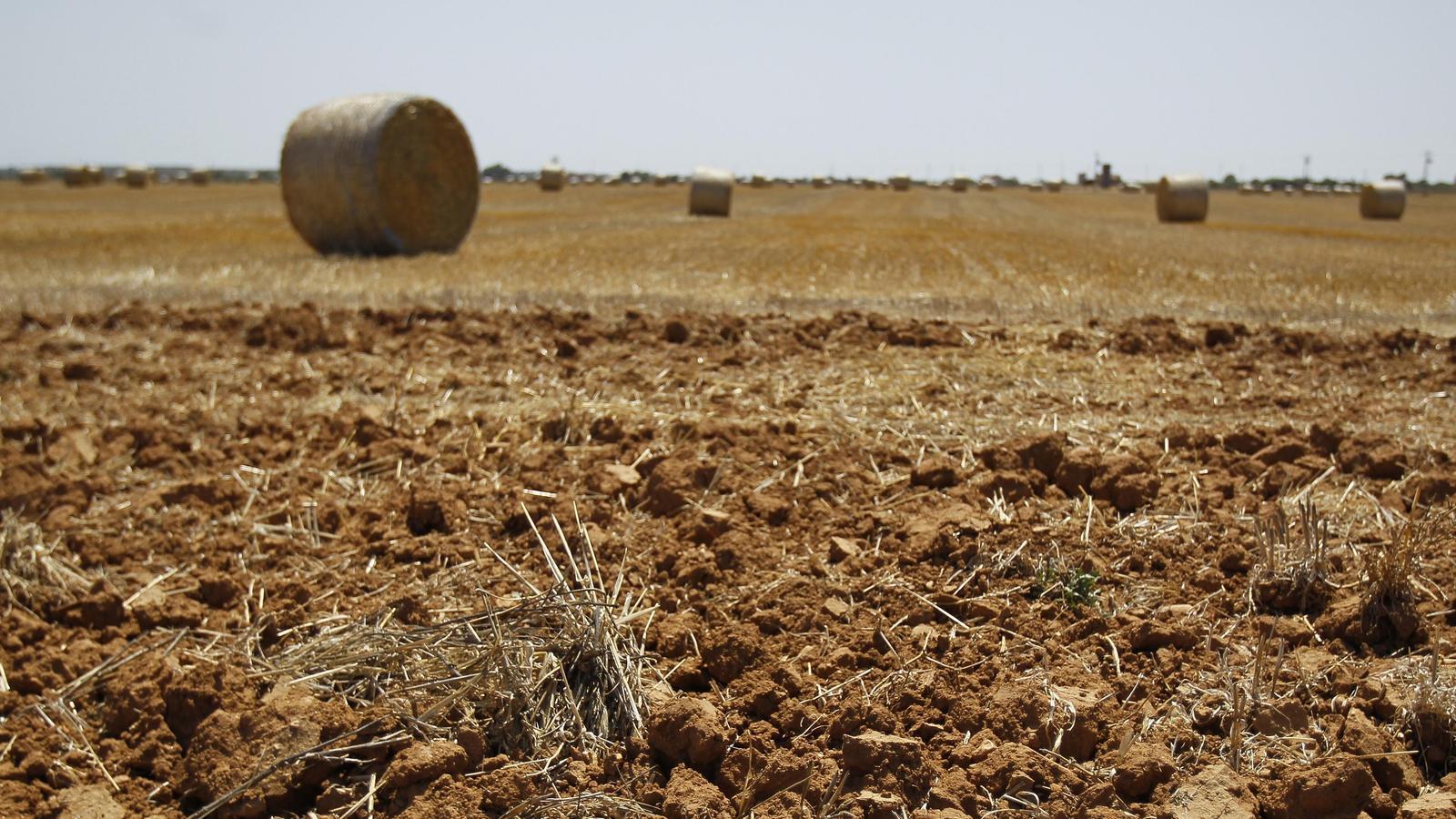We're running out of water: El Pla and Ibiza are at their limit.
The largest island in the Pitiusa region is facing an emergency despite having its three desalination plants at 100% capacity. Less touristy municipalities are demanding greater government investment in their water systems.


Ibiza's three desalination plants are operating at 100% capacity with no margin for error. A breakdown "would be very serious," admits a Water Resources technician. The aquifers in the greater Pitiusa region are at 34%. Any drop of four points would require an emergency declaration. The Pla de Mallorca is also experiencing a critical situation, especially in municipalities like Porreres, Algaida, and Montuïri. Without the truck trips, there would be no water for the supply, as the wells are dry. "In some towns, we're running out of water, and in others, there's no water at all. This has been going on for a long time. We're tired of repeating that we can't continue like this," says Joana Maria Pascual, president of the Plan Association.
According to data from the Ministry of the Sea and the Water Cycle, 98.4% of the islands' territory is on pre-drought alert, with 48% of groundwater resources available, two percentage points less than the same period last year. 2024 was already a critical year in terms of water. Menorca is also notable, dropping six percentage points compared to the previous year, despite having less proportional human pressure than Mallorca or the Pitiusas. Thus, it faces the summer with only 42% of the resources available in the island's aquifers.
The cry of despair from the president of the Plan Association (Mancomunidad del Plan) portrays a water crisis that extends far beyond the summer. In certain towns in the Pla region, the lack of water is structural. Just by supplying it by truck to the municipalities that need it, the residents of the Association share the cost of half a million euros annually, although they occasionally receive support from regional funds. "But last year, the municipalities spent more than they could afford due to the spending rule. This means that technically it's not feasible to continue doing this," Pascual complains. Just recently, the right-wing majority in Parliament has rejected approving an extraordinary allocation to finance water trucking.
Why the Plan has no water
If the Plan hasn't experienced the exponential population increases experienced by other parts of Mallorca or the rest of the Balearic Islands, and doesn't have much tourism, why doesn't it have water? The answer is very simple: precisely because it doesn't have large towns or tourism. Just look at where the desalination plants have been built: Palma, Andratx, Calvià, Alcudia, Ibiza, San Antonio, Santa Eulalia, Menorca, and Formentera. "We don't have desalination plants nearby or a network interconnected with the main water supply that would allow us to receive water," Pascual explains. "The residents of our towns don't understand why they can't water their flower pots. Then they go to the coast and see hotels with lawns, watered day in and day out, not to mention the number of swimming pools," he concludes.
"We were so desperate that a few years ago we did a project as a Mancomunidad (Community). They gave us some aid, but the execution time was not enough because it is neither our competence nor are we qualified. They have been assuring us for years that it will be fixed, but here the only thing we have today are trucks and promises.
According to the UIB expert, Cels García, "the situation of the Plan has been going on for a long time, it has quality problems in some municipalities and quantity, among others." "Abaqua, that is, the Government, must resolve the situation as it has done in other places and connect them to what is known as the high network, which means access to the general water system and being able to provide water security," he says.
García also wants to emphasize the economic model and the human pressure it generates on resources in general, since "everything is interconnected." "If Palma increases desalination capacity because it's planning new urban developments, they will need water. This means that the towns of the Pla del Sol will once again be left without it, no matter how connected to the grid they are," he warns.
The General Directorate of Water Resources is redoubling its efforts, but does not deny that it is "facing a very complicated situation," admits the head of the area, Joan Calafat, for whom connecting the towns of the Pla del Sol "must be a priority."
In addition to an increasingly common lack of rain, June is also extraordinarily warm, with temperatures 3.3 degrees above the historical average. Palma—unaccustomed to using water from the desalination plant because Mayor Jaime Martínez doesn't want to pay large bills to Abaqua (the owner of the facility)—has been forced to reinforce its supply with water from the Alcúdia desalination plant. "Furthermore, the reservoirs also have less water than in other years. The situation is not good. Although some municipalities are resisting restrictions, what we must be clear about is that the quality of the supply this year will not be good," admits the Director General of Water Resources.
Ibiza, the most critical island
The increase in population and tourism in Ibiza has pushed the aquifers to the limit: they have been forced to supply water from the three desalination plants, which are already at 100% of their production capacity. Only Santa Eulària, with 65%, and San Juan, with approximately 45%, are supplied from the subsoil. "The rest can now only rely on the desalination plant because the aquifers have been salinized by overexploitation. We need to review their model and be very cautious, because otherwise this fragility of the system will become chronic," says Cels García.
There is agreement on launching a fourth desalination plant, "but the problem is that, with more desalinated water, the number of planning licenses in Ibiza will increase." "We don't learn, and here we only see the business. What's happening with water is absurd, with trucks going to villas to fill swimming pools. We're not aware of the damage we're doing to the land and subsoil with this anything-goes policy," says Neus Prats, spokesperson for the GEN-GOB (National Council of Governance and Development). The reality is that today, a dozen municipalities on the islands apply some restrictions, but mayors resist taking action because they are considered unpopular, while environmentalists see them as educational. "Now, turning off the tap in small towns so tourists don't look down on them makes no sense," says Miquel Frau, an engineer and waterworks expert.
Despite the persistent drought, experts emphasize one factor when analyzing the reasons for the critical water supply situation: the runaway growth of population and tourism.
In the last 25 years, the population of the Balearic Islands has increased by 31%, with Formentera—with a 100% increase—and Ibiza, with nearly 80%, being the two islands that have experienced the greatest changes.
In the case of Menorca, the number of inhabitants has also increased by nearly 40%, while Mallorca has grown proportionally the least, slightly over 30%.
To these figures must be added the number of tourist arrivals, which have skyrocketed: Between 2000 and 2024, the number of international tourists has increased from 10 to 15 million, and if domestic tourists are added, the figure now exceeds 18 million.
The Committee of Experts for Energy Transition and Climate Change of the Balearic Islands has warned that these figures are "unsustainable" and has repeatedly called on government officials to implement specific measures to prevent further impact on natural resources. For its part, the Balearic Islands Regional Government (GOBMallorca) has taken advantage of the latest regulations that increase building capacity, even on rural land, to assert that the Prohens government's policy "will lead us to collapse."
